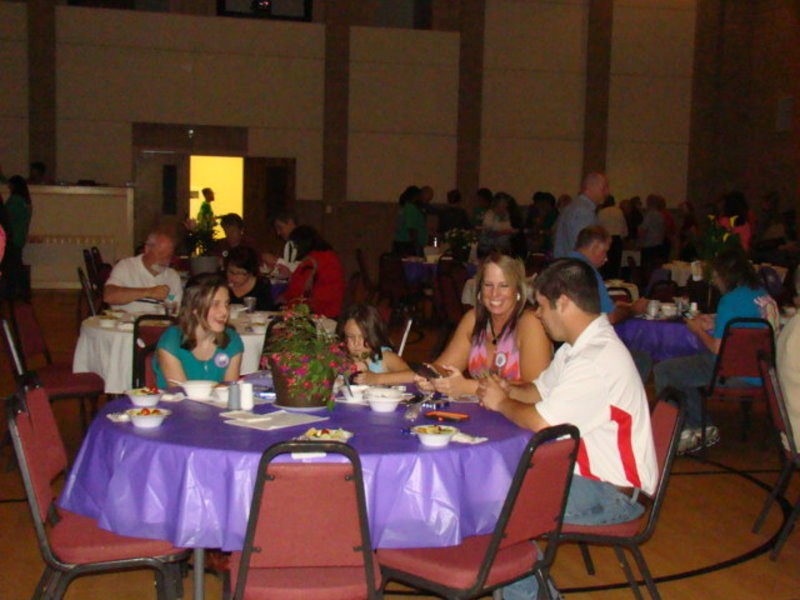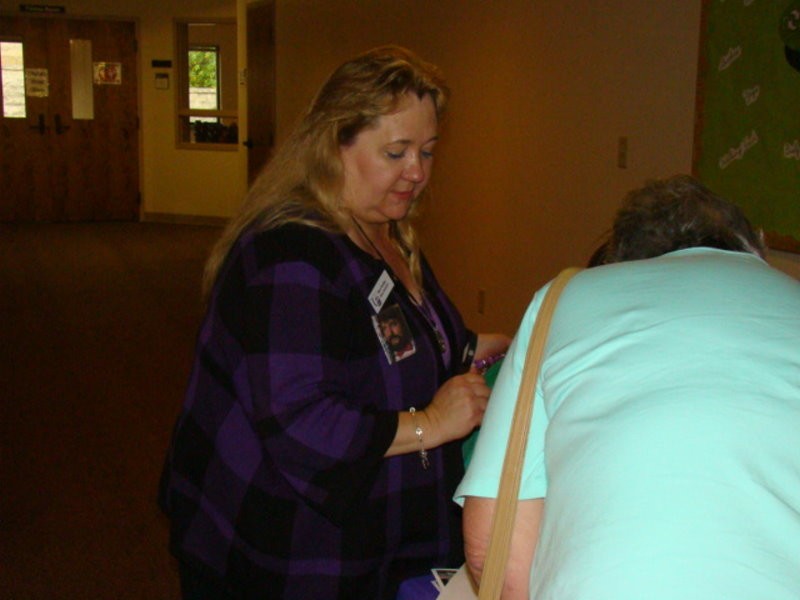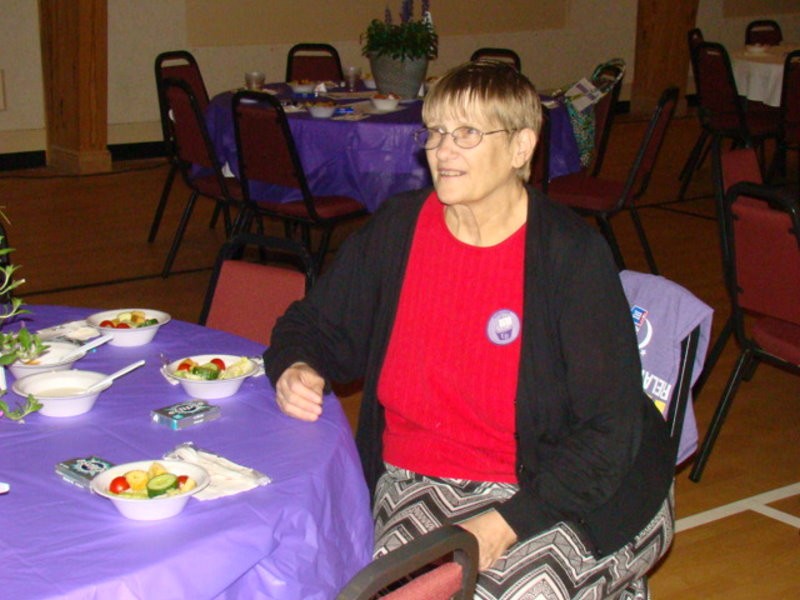GAINESVILLE- If ever there was anyone who symbolized 'Fighting Cancer' it is Dottie Adams, whose battle has lasted on and off for seven years.
Adams spent her childhood in Hall County and now lives in Marietta, but returns often to Gainesville for doctor's visits. I met her recently at the American Cancer Society Survivor Dinner Reception held at the First Methodist Church where she was among an estimated 380 cancer survivors and caregivers who attended.
"I look forward to every day and don't take a single one for granted," she said. "I think just spending more time with my grand kids and trying make sure they remember me is really important."
Dottie Adams was first diagnosed with cancer in 2008 and battled it with surgery, chemotherapy and radiation. She became cancer-free, but a year later, it returned. There was more chemotherapy, she was cancer free again, then three years later it hit really hard.
"It was blocking my intestines, I had some really major surgery and I was in the hospital for three months on intravenous nutrition with nothing by mouth. A lot of people didn't think I would make it but I pulled through."
Almost two years passed, then cancer came back.
"It came back for a fourth time and I was diagnosed this time last December 8th," she said. "I went through radiation treatment January and February this year, I just had a CT-Scan and it looked good so I'm very pleased."
The 62-year-old grandmother believes, in her case, there are microscopic cells that you can't always can't rid of and they lay low and come back again. Doctors told her during her second treatment the disease would come back because it came back from above where it was radiated.
"I just know that's going to be the case and I don't get upset if it does," she said. "We do what we have to do each time and take it with a smile."
Adams is a solid supporter of the annual Relay for Life. It takes place this year on the University of North Georgia Gainesville campus beginning at 7 p.m. with the Survivors Walk. Adams is going to be a relay team captain.
"Relay is all about the survivors," she said. "That's why we're out there trying to raise money to do good things with it and make them feel they are not out there alone. I'll be there, leading the pack."
Cancer Society Community Manager Rena Pendley said she expects 97 relay teams with 1,000 participants for this year's Relay.
"The Relay is the signature event for our fund raising for cancer research and patient programs," Pendley said. "We are actually the largest not for profit cancer research funder in the world next to the U.S. Government."
According to Pendley, that research funding over the years has paid off. There are now 12-million cancer survivors in the United States. Since 1997, the incidence of cancer is rising, but so is the the number of survivors.
"We are a major player," she said. "Just in Georgia we raised $17-million dollars with Relay for Life and 40 percent of that goes to research, with 60 percent of that going to patient services and programs locally in the community."
Nationwide, the Cancer Society, over one hundred years, has raised about $387-billion for research. The Relay for Life is now 30 years old and raises the most money. Pendley said the mortality numbers are coming down because of that Cancer Society supported research.
"Just 10 years ago adult leukemia did not have a good survival rate," Pendley said, "Now they survive by taking one pill a day and it gets them through. The leukemia survival rate for children in the past 16 years has gone from less than five percent to nearly 90 percent".
Pendley said the survival rate for colon cancer is also encouraging and that was encouraging to me. I've been under treatment for colon cancer since 2011. The first major step in stopping colon cancer is a colonoscopy. It was the discovery of a tumor in my colon that so far has led to life saving treatment with surgery and chemotherapy.
"Ten years ago colon cancer was in the top five of cancer deaths but now it is nearly 100 percent preventable and treatable if everybody would get their colonoscopy as directed by the screening guidelines," according to Pendley. "Go have a conversation with your doctor about what your colon screening should be because the success rate with colon cancer and the survival rate is so much higher because of the screening."
Pendley said colonoscopies should begin at age 50 and if you have colon cancer in your family it should begin earlier, at age to about 35 or 40. I had my first colonoscopy at age 64. That's when they found the tumor.
But I am a cancer survivor, cheered by another cancer survivor's words. "I look forward to every day and don't take a single one for granted," Dottie Adams said. "We do what we have to do each time and take it with a smile."
Friday
July 11th, 2025
10:43PM











